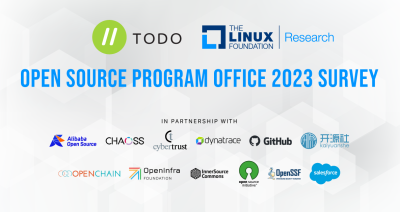Optimizing Sales for Happiness
Looking for GitHub’s sales team? Please Contact Us. 10/17/14 Update from @pjhyett: Building products that people love paired with a customer-focused sales team hasn’t changed, but the specifics of our…
Looking for GitHub’s sales team? Please Contact Us.
10/17/14 Update from @pjhyett: Building products that people love paired with a customer-focused sales team hasn’t changed, but the specifics of our approach have evolved over time as with all things at GitHub. For engineering-centric startups looking to build a sales team, this post is for you.
We’ve spoken about how we try to optimize for happiness at GitHub. You’re also likely hear the term first principles thrown around if you spend a few days at our office. We insist on taking the time to research and discuss various solutions when faced with a new challenge rather than blindly accepting the status quo. How we approach sales at GitHub is no different.
GitHub Has a Sales Team?
We sure do, but figuring out what sales means within a very developer-centric company wasn’t all unicorns and octocats. The siren song of big revenue gains can easily disrupt your team’s ultimate goals and culture if you’re not careful. It wasn’t difficult to spot the slippery slope after hiring even one dedicated salesperson, so how do we optimize sales for happiness?
By putting our product and people first. If that means turning down revenue opportunities to remain true to this philosophy, so be it. Making gobs of money has never been our main focus, but we can operate this way and enjoy massive revenue growth across all of our products.
The first (and most important) thing we had going for us was a product that sells itself. With an unwavering focus on building the best products possible, we’re in a wonderful position that 99% of our customers require very little handholding. People just want to use GitHub, so we make it easy to pay for it, and essentially get out of their way.
Sales our Way
The remaining 1% of customers is where sales comes into play. Much in the same way support guides folks through technical questions, we needed people to guide customers through business questions. Not only that, developers within larger organizations sometimes need help convincing the people with the purchasing authority to buy the products they really, really want to use.
We still call this role sales, but our team likes to think of themselves as developer liaisons. The role is akin to a sales engineer or technical account manager. It’s definitely not your prototypical sales person that’s cold-calling people all day to reach their quota.
In fact, all of our sales people have technical backgrounds, they just happen to also love the support and business side of things. They enjoy speaking with customers, building long-term relationships, and are comfortable navigating the inner workings of organizations to ultimately find a way to make sure those developers get to use the products they’re asking us for.
No commissions
Another traditional sales tool that doesn’t really makes sense for us is paying commissions. Commissions are an incentive to churn and burn through orders as fast as possible, regardless of the consequences. They also introduce massive overhead and logistic problems amongst the salespeople and the company as a whole, so we’re happy to avoid all of that crap.
We want our sales people compensated just like everyone else in our organization: great salaries, great benefits, and stock options. We expect everyone to work hard, but we’re all in this together and no one should feel marginalized because sales is reaping the rewards from years of hard work done by others.
At the end of the day, the key to sales at GitHub is the key to GitHub’s success in general: build an awesome product and treat people well. We don’t claim to have unlocked some huge business secret with this idea, but we’re excited about our sales team at GitHub because we feel that doing it this way is best for our company and our customers. We’re in this for the long haul!
Written by
Related posts

Apply now for GitHub Universe 2023 micro-mentoring
As part of our ongoing commitment to accelerate human progress through Social Impact initiatives, we’re offering students 30-minute, 1:1 micro-mentoring sessions with GitHub employees ahead of Universe.

The 2023 Open Source Program Office (OSPO) Survey is live!
Help quantify the state of enterprise open source by taking the 2023 OSPO survey.

Godot 4.0 Release Party 🎉
We are delighted to host the Godot 4.0 Release Party at GitHub HQ on Wednesday, March 22 from 6:30 pm to 9:30 pm. And you’re invited!